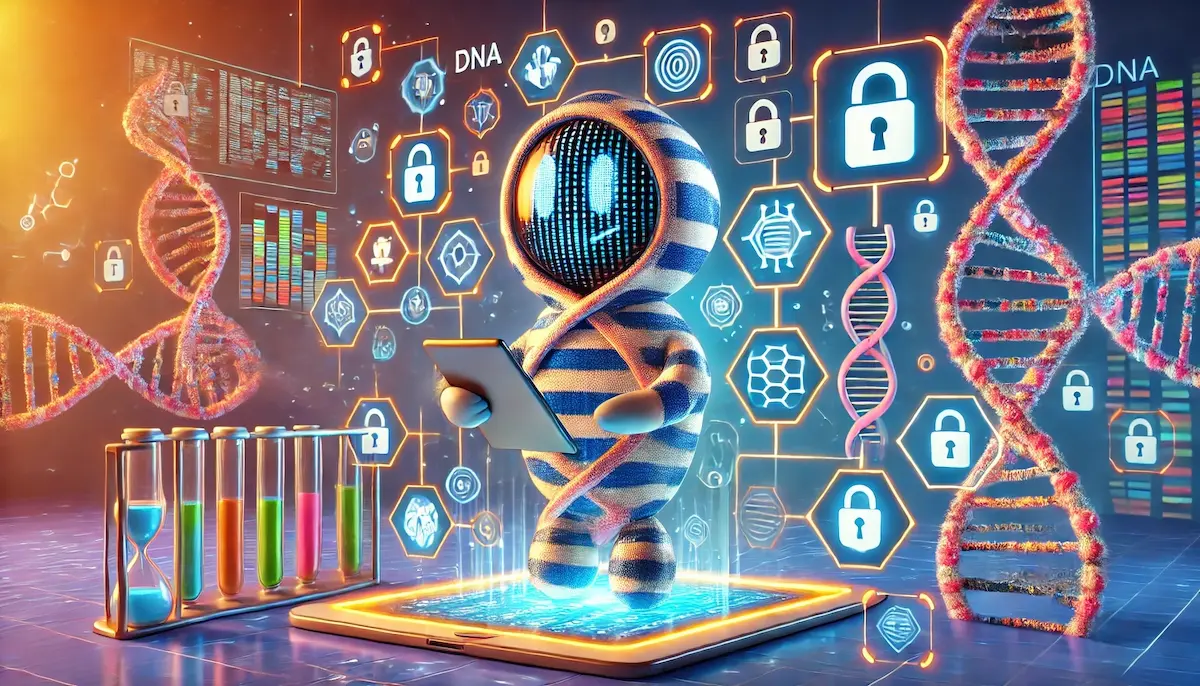As advancements in genetic research and DNA testing become more accessible and widespread, genetic privacy has emerged as a critical issue. Genetic privacy refers to the protection of an individual’s genetic information—data derived from their DNA—against unauthorized access, use, or disclosure. This information is incredibly personal and sensitive, and how it is handled has significant implications for individuals’ privacy, security, and rights.
What is Genetic Privacy?
Genetic privacy involves safeguarding the data that comes from an individual’s genetic makeup. This data, which includes details about a person’s ancestry, health risks, and potential predispositions to certain diseases, is uniquely tied to an individual and their family. The concern over genetic privacy arises because this information can be misused in ways that affect an individual’s life, from discrimination in employment or insurance to breaches of personal privacy.
With the rise of direct-to-consumer genetic testing services, such as those offered by companies like 23andMe or Ancestry.com, millions of people are now voluntarily submitting their DNA for analysis. While these services offer valuable insights into health and ancestry, they also raise concerns about how genetic data is stored, shared, and protected.
Why is Genetic Privacy Important?
Genetic privacy is crucial for several reasons:
1. Sensitive Nature of Genetic Data
Genetic information reveals much more than just personal health risks; it can also provide insights into family relationships, ethnicity, and even the likelihood of passing on certain traits or conditions to future generations. The sensitivity of this data means that its unauthorized use could lead to significant personal and social consequences.
2. Potential for Discrimination
If genetic information is accessed by employers, insurance companies, or other entities, it could lead to discrimination based on a person’s genetic predispositions. For example, an employer might deny employment or promotions to someone with a genetic marker for a particular disease, or an insurance company might increase premiums or deny coverage based on genetic risks.
3. Impact on Family Members
Because genetic information is shared among family members, the disclosure of one person’s genetic data can inadvertently reveal information about their relatives. This interconnectedness means that protecting genetic privacy is not just an individual concern but a family one.
4. Consent and Control
Individuals should have the right to control who has access to their genetic information and how it is used. This includes the right to provide informed consent before their data is shared or used in research.
5. Trust in Medical Research
Protecting genetic privacy is essential for maintaining public trust in medical research. If people fear that their genetic data could be misused, they may be less willing to participate in research studies, which could hinder scientific progress.
Challenges in Genetic Privacy
Protecting genetic privacy presents several significant challenges:
1. Data Security
The storage and transmission of genetic data pose security risks, as databases containing genetic information can be targeted by hackers. Ensuring that this data is encrypted, anonymized, and stored securely is critical to preventing unauthorized access.
2. Informed Consent
Many people who submit their DNA for testing may not fully understand how their genetic data will be used or shared. Companies and researchers must ensure that individuals provide informed consent and are aware of the potential risks involved.
3. Legal Protections
While some laws, such as the Genetic Information Nondiscrimination Act (GINA) in the United States, provide protections against the misuse of genetic information, these laws may not cover all scenarios or be robust enough to address the complexities of genetic privacy. There is ongoing debate about the need for stronger legal frameworks to protect genetic data.
4. Data Sharing and Third-Party Access
Genetic testing companies often share data with third parties for research or commercial purposes. Even if the data is anonymized, there is a risk that it could be re-identified, especially when combined with other data sources. This raises concerns about how data is shared and who has access to it.
5. International Differences
Different countries have varying levels of protection for genetic privacy, which complicates the global landscape. Individuals may not be fully protected if their genetic data is shared across borders, where privacy laws may be less stringent.
6. Rapid Advancements in Technology
As technology evolves, new methods for analyzing and interpreting genetic data are constantly being developed. This can outpace existing privacy protections, creating gaps that could be exploited by malicious actors.
Protecting Genetic Privacy
Given these challenges, several strategies can help protect genetic privacy:
1. Stronger Legal Frameworks
Governments and international bodies need to develop and enforce comprehensive laws that protect genetic privacy, covering everything from consent and data sharing to penalties for misuse.
2. Enhanced Data Security Measures
Organizations handling genetic data must implement robust security measures, including encryption, secure storage, and regular audits, to protect against breaches and unauthorized access.
3. Transparency and Education
Companies and researchers should be transparent about how genetic data will be used and shared, ensuring that individuals are fully informed before providing their consent. Public education campaigns can also raise awareness about the importance of genetic privacy.
4. Anonymization and De-Identification
When sharing genetic data, it should be anonymized or de-identified to reduce the risk of re-identification. However, organizations must recognize that even anonymized data can sometimes be re-identified, so additional precautions are necessary.
5. Personal Control
Individuals should have the ability to control their genetic data, including the right to access, delete, or withdraw consent for its use. This empowerment is critical for maintaining trust and respecting personal privacy.
Conclusion
Genetic privacy is a critical issue in the age of digital health and personalized medicine. As more people engage with genetic testing services and as research in genomics advances, the need to protect genetic data becomes increasingly important. By implementing strong legal protections, enhancing data security, and ensuring transparency and informed consent, society can safeguard genetic privacy while still benefiting from the valuable insights that genetic research can provide.
Blockfine thanks you for reading and hopes you found this article helpful.
